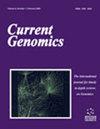Unraveling the Concealed Transcriptomic Landscape of PTEN in Human Malignancies
IF 1.4
4区 生物学
Q4 BIOCHEMISTRY & MOLECULAR BIOLOGY
引用次数: 0
Abstract
Background: Phosphatase and tensin homolog, widely known as PTEN, is a major negative regulator of the PI3K/AKT/mTOR signaling pathway, involved in the regulation of a variety of important cellular processes, including cell proliferation, growth, survival, and metabolism. Since most of the molecules involved in this biological pathway have been described as key regulators in cancer, the study of the corresponding genes at several levels is crucial. Objective: Although previous studies have elucidated the physiological role of PTEN under normal conditions and its involvement in carcinogenesis and cancer progression, the transcriptional profile of PTEN has been poorly investigated. Methods: In this study, instead of conducting the “gold-standard” direct RNA sequencing that fails to detect less abundant novel mRNAs due to the decreased sequencing depth, we designed and implemented a multiplexed PTEN-targeted sequencing approach that combined both short- and longread sequencing. Results: Our study has highlighted a broad spectrum of previously unknown PTEN mRNA transcripts and assessed their expression patterns in a wide range of human cancer and non-cancer cell lines, shedding light on the involvement of PTEN in cell cycle dysregulation and thus tumor development. Conclusion: The identification of the described novel PTEN splice variants could have significant implications for understanding PTEN regulation and function, and provide new insights into PTEN biology, opening new avenues for monitoring PTEN-related diseases, including cancer.揭示PTEN在人类恶性肿瘤中隐藏的转录组学景观
背景:磷酸酶和紧张素同源物,被广泛称为PTEN,是PI3K/AKT/mTOR信号通路的主要负调控因子,参与调节多种重要的细胞过程,包括细胞增殖、生长、存活和代谢。由于参与这一生物途径的大多数分子已被描述为癌症的关键调节因子,因此在几个水平上对相应基因的研究至关重要。目的:虽然以往的研究已经阐明了PTEN在正常情况下的生理作用及其在癌变和癌症进展中的作用,但对PTEN的转录谱的研究却很少。方法:在本研究中,我们设计并实现了一种结合短链和长链测序的多路pten靶向测序方法,而不是进行“金标准”的直接RNA测序,因为测序深度降低而无法检测到较少的新mrna。结果:我们的研究强调了以前未知的PTEN mRNA转录物的广谱,并评估了它们在广泛的人类癌症和非癌症细胞系中的表达模式,揭示了PTEN在细胞周期失调和肿瘤发展中的作用。结论:发现新的PTEN剪接变异可能对理解PTEN的调控和功能具有重要意义,并为PTEN生物学提供新的见解,为监测包括癌症在内的PTEN相关疾病开辟新的途径。
本文章由计算机程序翻译,如有差异,请以英文原文为准。
求助全文
约1分钟内获得全文
求助全文
来源期刊

Current Genomics
生物-生化与分子生物学
CiteScore
5.20
自引率
0.00%
发文量
29
审稿时长
>0 weeks
期刊介绍:
Current Genomics is a peer-reviewed journal that provides essential reading about the latest and most important developments in genome science and related fields of research. Systems biology, systems modeling, machine learning, network inference, bioinformatics, computational biology, epigenetics, single cell genomics, extracellular vesicles, quantitative biology, and synthetic biology for the study of evolution, development, maintenance, aging and that of human health, human diseases, clinical genomics and precision medicine are topics of particular interest. The journal covers plant genomics. The journal will not consider articles dealing with breeding and livestock.
Current Genomics publishes three types of articles including:
i) Research papers from internationally-recognized experts reporting on new and original data generated at the genome scale level. Position papers dealing with new or challenging methodological approaches, whether experimental or mathematical, are greatly welcome in this section.
ii) Authoritative and comprehensive full-length or mini reviews from widely recognized experts, covering the latest developments in genome science and related fields of research such as systems biology, statistics and machine learning, quantitative biology, and precision medicine. Proposals for mini-hot topics (2-3 review papers) and full hot topics (6-8 review papers) guest edited by internationally-recognized experts are welcome in this section. Hot topic proposals should not contain original data and they should contain articles originating from at least 2 different countries.
iii) Opinion papers from internationally recognized experts addressing contemporary questions and issues in the field of genome science and systems biology and basic and clinical research practices.
 求助内容:
求助内容: 应助结果提醒方式:
应助结果提醒方式:


